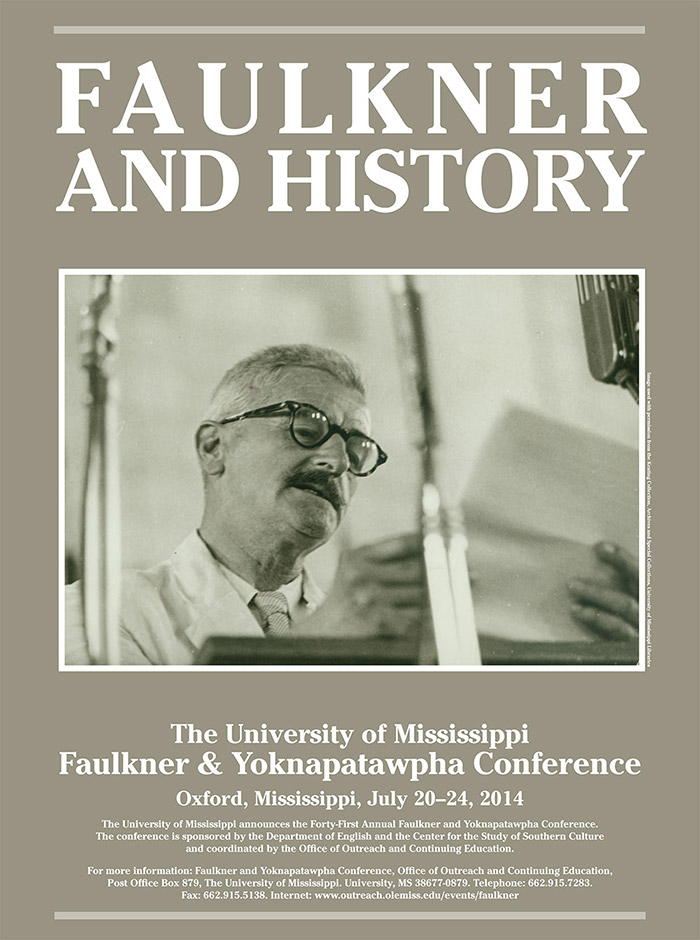
The Past Lives, But What Does It Do? William Faulkner, C. Vann Woodward, and the "Burden" of Southern History
Location
Nutt Auditorium
Start Date
20-7-2014 4:00 PM
Description
Arguably the most influential southern historian of all time, C. Vann Woodward readily acknowledged William Faulkner as “always a powerful influence on me, although I didn’t always know it.” Ironically, Faulkner ( and several others in his literary cohort) led the way for their contemporaries in southern history by offering the first major challenges to the traditional historical narrative constructed after the Civil War to justify the South’s past and legitimize its existing order. Embracing Faulkner’s vision of the abiding power of the past over the present, Woodward inverted the prevailing historical model by combing the South’s experience for “constructive meanings” that seemed to undermine the status quo rather than affirm it. Though he saw historical forces as ultimately more tractable than did his literary idol, as he proceeded to revolutionize the study of southern history, what Woodward called Faulkner’s sense of the present as “merely a fleeting segment of the cumulative past” was never far from his mind.
Relational Format
Conference proceeding
Recommended Citation
Cobb, James C., "The Past Lives, But What Does It Do? William Faulkner, C. Vann Woodward, and the "Burden" of Southern History" (2014). Faulkner and Yoknapatawpha Conference. 3.
https://egrove.olemiss.edu/fy/2014/schedule/3
The Past Lives, But What Does It Do? William Faulkner, C. Vann Woodward, and the "Burden" of Southern History
Nutt Auditorium
Arguably the most influential southern historian of all time, C. Vann Woodward readily acknowledged William Faulkner as “always a powerful influence on me, although I didn’t always know it.” Ironically, Faulkner ( and several others in his literary cohort) led the way for their contemporaries in southern history by offering the first major challenges to the traditional historical narrative constructed after the Civil War to justify the South’s past and legitimize its existing order. Embracing Faulkner’s vision of the abiding power of the past over the present, Woodward inverted the prevailing historical model by combing the South’s experience for “constructive meanings” that seemed to undermine the status quo rather than affirm it. Though he saw historical forces as ultimately more tractable than did his literary idol, as he proceeded to revolutionize the study of southern history, what Woodward called Faulkner’s sense of the present as “merely a fleeting segment of the cumulative past” was never far from his mind.

